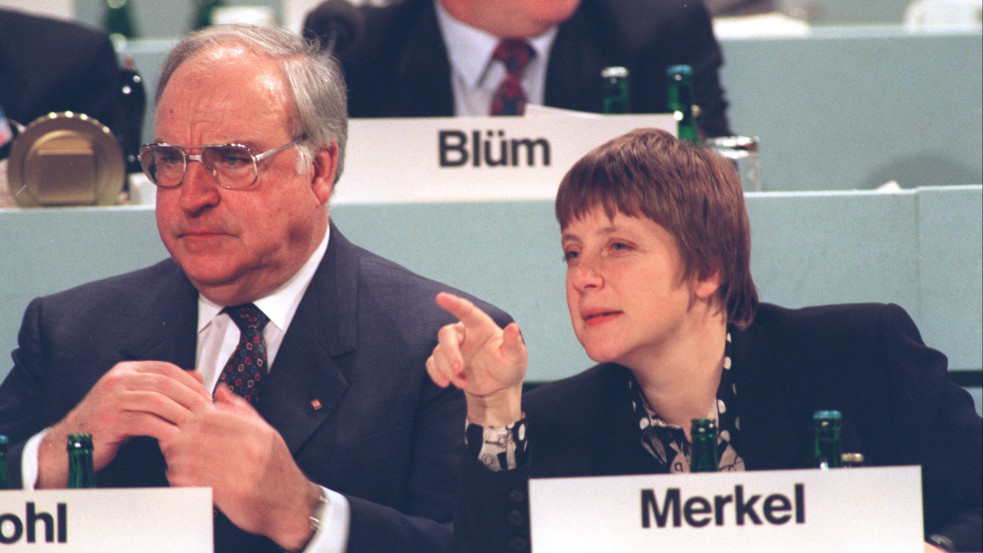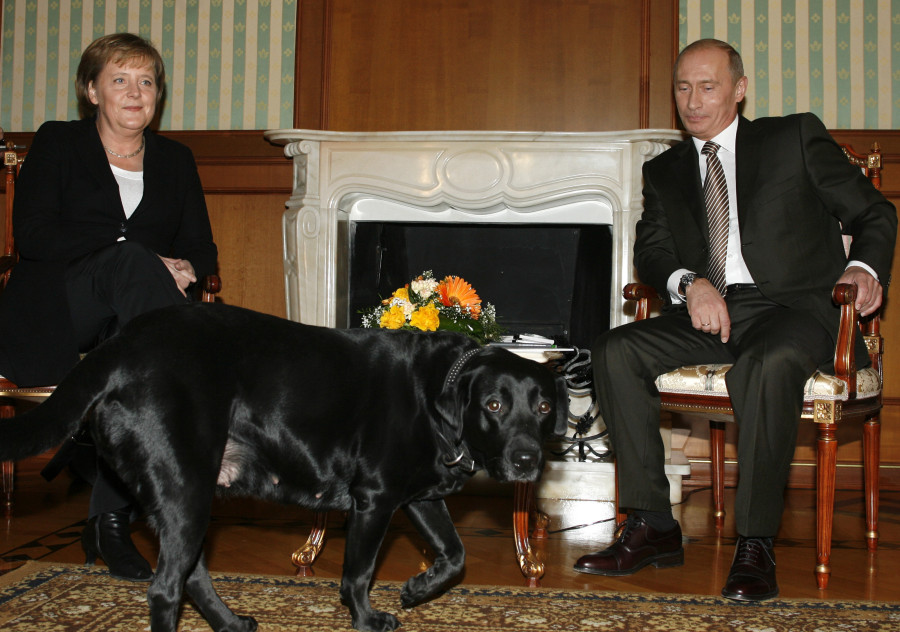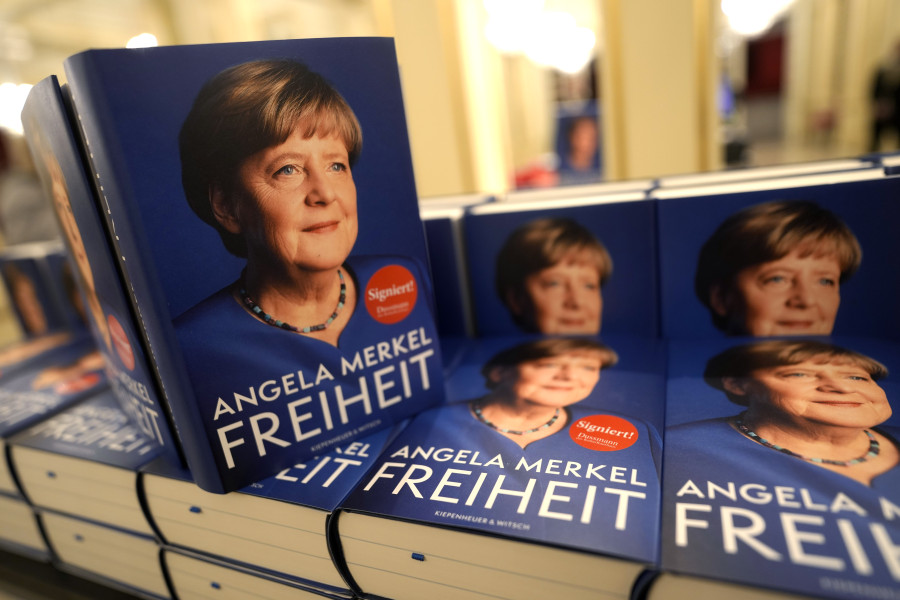
On the day of its publication, the third longest-reigning German chancellor made more money with the book and its rights, published in 30 languages at once, than the Obama couple did with their own similar autobiographies. Apparently, Germans are so dissatisfied with the current political leadership that 'Merkel nostalgia' has broken out in Germany, with long queues of people waiting to buy the book and have it signed by Angela Merkel. The book has been translated into American English by a total of eight translators, who have of course done their utmost to reproduce the original German sentences in the most faithful form.
However, experts say that the effort will be in vain: the book will be of interest primarily to Germans, and even if the translation has been able to include some additions that might make the text more comprehensible to speakers of other languages, the content will not be much more interesting for them.
Many veteran journalists from the major media outlets who cover Germany give lengthy analyses of the book, but all agree that there is too much information and too little personal dimension. Merkel and her co-author Beate Baumann recall in almost shocking detail all the dry facts of the former chancellor's political career, but there is no mention of how Merkel herself experienced these events or what it meant for her family, as one would expect from a better biography.
Unfortunately, this shortcoming could not be remedied by the fact that Merkel felt obliged to mention every German politician she had ever dealt with, about whom a British publicist sarcastically remarked that if she did not know these people, after more than half a century of dealing with German politics, then the average citizen was even less likely to know them. And if you lose your way in the maze of names, you often lose all interest.
It is clear from the style of the book that Merkel is very often lost in what she calls realpolitik on the ground, and as she does not give the reader any overall picture, her decisions as Chancellor probably lacked this overall geopolitical vision. From the description, we learn that Merkel catapulted herself to the leadership of the Christian Democratic Union following the scandal surrounding Helmuth Kohl, and because her general composure and problem-solving skills developed as a researcher-scientist radiated stability in the 'chaos', she successfully seized the historic opportunity to lead the party and then the chancellorship, despite the fact that the environment was not particularly conducive to politicians of either female or East German origin.

The reader is left with the impression that, even in this post, Mrs Merkel was constantly in 'problem-solving mode' rather than shaping world politics. Among other things, she had to deal with the situation that arose in the wake of the 2008 global economic crisis: for example, the fact that the people of southern Europe almost dragged the euro into bankruptcy with them. Here we can recall the visit that the late Wolfgang Schäuble made to Greece to deliver a message to the newly elected, mildly populist government of Mrs Merkel and instructions on what steps they should take to create fiscal austerity, despite the fact that they had just managed to win the vote by promising the voters the opposite.
We also learn that she has had excellent communication with US presidents, including Donald Trump, because she speaks English well, but the book also reveals that she has not had such good communication with Vladimir Putin, despite Putin's excellent German and Merkel's Russian. In a rare personal aside, Merkel had an unpleasant experience during her visit to Putin, who allowed her black Labrador Koni to attend the summit. However, Merkel, after being bitten by a dog in 1995, was uncomfortable with the dog and describes in the book that Putin's face showed that he was enjoying the situation. When the book was published, the Russia Today news portal reported that Putin later apologised to Merkel for the episode.
A similar problem to be solved was the Covid-19 pandemic in his last term, but also the mass migration effort to generously take in refugees from the civil war in Syria in 2015, where the idea may have been good but the execution was so sandbagged that the "Wir schaffen das!" - or "We can do it!", has since become more of a catchphrase in the German vocabulary.
There was also the constant problem of how to stay in power as Chancellor for so long. All he had to do was to pragmatically pick and choose from the proposals of his political opponents those that could be implemented. As the others saw that their workable ideas would be embraced by the government, it was pointless to fight Merkel, but rather the practice was created to allow a coalition government of all colours and types to be formed. Thus, it can be said that this 'unification' in German politics was a direct precursor to the current 'traffic light coalition', which has just failed and whose failures are clearly attributed to Olaf Scholz's indecisiveness.

Within months of Merkel handing over the baton to Scholz and the new government, the Russian-Ukrainian conflict erupted. If nothing else, it is to Merkel's credit that during her chancellorship she was the only international leader to argue that Russia has legitimate imperial claims, that these will not disappear overnight, and that the Russians must be negotiated with. But it is another matter that Merkel was part of the 'diversion' of what the Russians thought was an agreement on Ukraine. Nevertheless, the timing is symbolic: Merkel is leaving the stage of big politics and Russia is launching an offensive against Ukraine.
The reader who manages to wade through 720 pages of political narrative cannot expect to learn anything about the state of the German economy or the decisions that led to its crash, other than what was in the news at the time. Merkel speaks in superlatives throughout about German industry and its various sectors, 'the automotive industry, engineering and chemicals', despite the fact that they are not performing nearly as well as they used to. Exposure to Russian resources, for which Merkel came in for a lot of criticism at the end of her chancellorship, is clearly having an impact following the imposition of sanctions over the war in Ukraine.
The fact that she discusses her environmental measures at some length in the book gives the impression that this was a very important topic for Merkel throughout. She is also at pains to explain why, for example, she initiated the closure of nuclear power plants in 2011 following the Fukushima nuclear disaster. This measure, which was not economically sound, was then completed by one of the gems of Scholz's government, the Green Party bureaucrat turned environment minister Robert Habeck, who helped to close the last three remaining German nuclear power plants.
The book lacks any conclusion, and although there is some self-criticism, we do not feel that we understand when and why Angela Merkel made the decisions she did. Publicists say that a German politician, above all, always has the duty to be boring. With her book, Angela Merkel has confirmed this observation to the fullest extent.